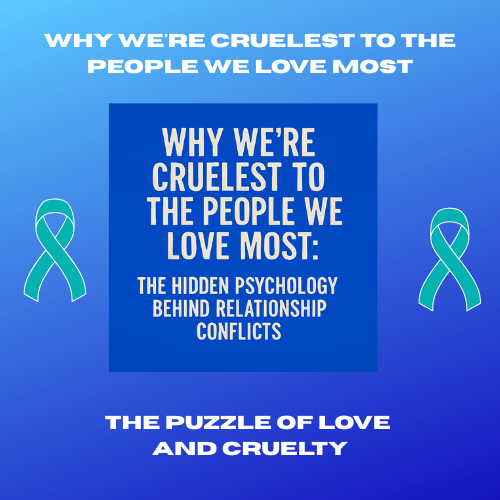How Flashbacks Trigger PTSD
Understanding Your Brain’s Alarm System
The first time the missile lock alarm screamed through the cockpit, it was like a punch to the chest. That shrill, piercing sound bypassed every layer of thought and went straight to instinct. Time warped as adrenaline surged. The combat pilot gripped the stick, eyes darting across the instrument panel. A Surface-to-Air Missile (SAM) had locked onto his jet.
He didn’t have to think; training took over. The evasive maneuver began with a sharp roll and dive, the G-forces pressing him hard against the seat. His breath was shallow, controlled, almost mechanical. The missile streaked toward him, a fiery spear of precision and destruction. His hand hovered over the controls, and in one fluid motion, he fired the flares. The pyrotechnic devices that emit a large amount of infrared radiation confuse the missiles from following the greater heat signal.
The seconds stretched into what felt like hours. He could almost feel the missile closing in, the heat of its proximity like a phantom. Then, just as suddenly as it began, the radar screen cleared.
The missile had veered off, chasing the decoys, and detonated harmlessly in the distance. But there was no time to celebrate. Another alarm lit up, another threat. The mission continued, and so did the chaos.
The Flashback: When the Past Hijacks the Present
Years later, that moment, the missile, the alarm, the life-or-death decisions, come back to him when he least expects it. The hum of a highway, the faint chirp of a car’s lane departure warning, the sudden motion of a vehicle swerving too close, any of these can trigger the memory.
He’s behind the wheel of his family car, his kids laughing in the backseat, his spouse scrolling through a playlist to find their favorite song. It’s a peaceful, ordinary moment.
But then, out of nowhere, a car cuts him off on the highway. His body reacts before his mind can catch up. He jerks the wheel to avoid a collision, and in a split second, the present dissolves into the past.
The steering wheel becomes the stick of his jet. The hum of the tires on asphalt morphs into the deafening roar of engines at full throttle. His heart pounds, his palms sweat, and the sharp memory of that missile lock floods his senses.
He’s not on the highway anymore; he’s back in hostile skies, evading the missile that nearly ended it all.
When the flashback subsides, he’s left gripping the wheel, his family’s concerned voices pulling him back to reality.
He forces a smile, assures them he’s fine, but inside, he’s shaken. The memory feels as real as the day it happened.
This isn’t the first time, and it won’t be the last. Flashbacks like these come without warning, triggered by the most minor, most mundane details, a car horn, a sudden motion, or even the way sunlight glints off a windshield.
The Burden of Hypervigilance
For this pilot, the flashbacks go beyond the vivid reliving of a single event. They’ve rewired his body and mind to scan for danger, even when none exists, constantly.
On the road, he’s hyper-aware of every car, every movement, every possibility of a threat. It’s exhausting, like flying a combat mission every time he gets behind the wheel.
His family notices the way his jaw tightens, the way he grips the wheel a little too tightly, the way his eyes dart to the rearview mirror more often than necessary.
They don’t fully understand, and how could they?
How do you explain to your loved ones that your brain has turned a highway into a battlefield?
The Healing Journey: Reprogramming the Alarm System
The pilot knew he couldn’t keep living like this. The flashbacks, the hypervigilance, the constant feeling of being on edge, it was no way to live, especially not with his family depending on him.
Healing began with understanding.
His therapist explained that his brain, in its effort to protect him, had become stuck.
The amygdala, the part of the brain responsible for detecting danger, was overreacting to harmless triggers. It was as if his internal alarm system had been set to “high alert” and didn’t know how to turn off.
The flashbacks were his brain’s way of trying to process the trauma, but instead of filing the memories away, it kept replaying them.
The therapist introduced grounding techniques, tools to help him anchor himself in the present when a flashback struck.
If a memory began to take over, he could use his senses to bring himself back: feel the texture of the steering wheel, notice the color of the car in front of him, listen to the sound of his children’s laughter.
These small, simple acts reminded his brain that he wasn’t in the cockpit anymore. He was safe.
Reclaiming the Present
Over time, the pilot learned to recognize the early signs of a flashback: the racing heart, shallow breathing, and tightening in his chest.
Instead of letting the memory take over, he practiced interrupting it with intentional actions. Deep breathing exercises became his lifeline, slowing his heart rate and calming his nervous system.
He also found solace in sharing his story with other veterans. In their company, he didn’t have to explain himself.
They understood the weight of carrying the past into the present. Together, they worked on strategies to reclaim their lives, one moment at a time.
A New Mission
Healing doesn’t mean forgetting.
The memory of that missile lock will always be a part of his story. But it no longer defines him. He’s learned to make peace with the past, to let it inform his strength rather than his fear.
When he’s driving with his family now, he still feels the flicker of hypervigilance, but he also feels something else: gratitude.
Gratitude for the moments of calm, for the laughter of his kids, for the chance to keep moving forward.
To anyone battling flashbacks, this pilot’s story is proof that healing is possible.
It won’t happen overnight, and it won’t happen without effort.
But step by step, breath by breath, you can reprogram your brain’s alarm system and reclaim the life you deserve. The past may shape you, but it doesn’t have to control you.
The sky and the road are yours to navigate again.
2025© www.soundthetrumpet.org









